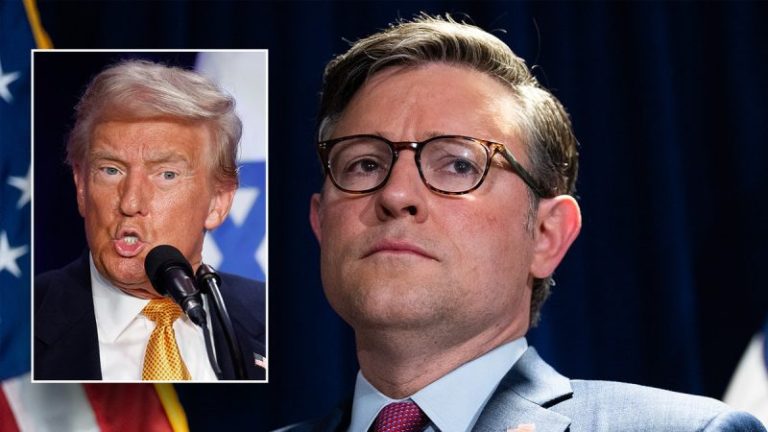President Donald Trump is expected to sign an executive order Tuesday instructing the Department of Government Efficiency (DOGE) to coordinate with federal agencies and execute massive cuts in federal government staffing numbers.
The order will instruct DOGE and federal agencies to work together to ‘significantly’ shrink the size of the federal government and limit hiring new employees, according to a White House fact sheet on the order. Specifically, agencies must not hire more than one employee for every four that leave their federal post.
Agencies will also be instructed to ‘undertake plans for large-scale reductions in force’ and evaluate ways to eliminate or combine agency functions that aren’t legally required.
DOGE Chair Elon Musk, the CEO of SpaceX and Tesla, told reporters Tuesday in the Oval Office that the American people voted for ‘major’ government reform and that the Trump administration would deliver.
Trump voiced similar sentiments about providing voters what they wanted – to tackle ‘all of this ‘horrible stuff going on’ – and told reporters that he hoped the court system would cooperate.
‘I hope that the court system is going to allow us to do what we have to do,’ Trump said, who also said he would always abide by a court’s ruling but will be prepared to appeal.
The order builds on another directive Trump signed after his inauguration implementing a federal hiring freeze, as well as an initiative from the U.S. Office of Personnel Management offering more than 2 million federal civilian employees buyouts if they leave their jobs or return to work in person. A federal judge has temporarily blocked the administration’s plan from advancing amid challenges from union groups.
Trump’s executive order aligns with DOGE’s ‘workforce optimization initiative’ and would impose restrictions to hire only for ‘essential positions’ as agencies brace for significant cuts to their workforce, according to the White House fact sheet.
The executive order will leave just a few areas of the federal government unscathed, including positions affiliated with law enforcement, national security and immigration enforcement.
DOGE is focused on eliminating wasteful government spending and streamlining efficiency and operations, and it is expected to influence White House policy on budget matters. The group has been tasked with cutting $2 trillion from the federal government budget through efforts to slash spending, government programs and the federal workforce.
The White House said on Feb. 4 that it predicted a ‘spike’ in resignations close to the original Feb. 6 deadline for the buyout offer, which would allow employees to retain all pay and benefits and be exempt from in-person work until Sept. 30.
‘The number of deferred resignations is rapidly growing, and we’re expecting the largest spike 24 to 48 hours before the deadline,’ a White House official told Fox News Digital on Feb. 4.
So far, approximately 65,000 federal employees have accepted the buyout offer, but a federal judge has issued a pause on the deadline for when employees must submit their resignations.
U.S. District Judge George O’Toole indefinitely extended a temporary restraining order Monday, pausing the deadline as he evaluates a preliminary injunction request stemming from cases against the buyout program filed by union groups, including the American Federation of Government Employees.
When asked about the buyout, Trump said that there are empty office spaces and that his administration is attempting to reduce the size of government.
‘We have too many people. We have office spaces occupied by 4% – nobody showing up to work because they were told not to,’ Trump said.
DOGE has moved to slash other areas of the federal government as well.
Other recent initiatives by DOGE have included launching an effort to shutter the U.S. Agency for International Development, a group that works to deliver aid to impoverished countries and development assistance.
The group has come under scrutiny from DOGE amid concerns about wasteful government spending, poor leadership and questionable funding, including an Iraqi version of ‘Sesame Street’ and reportedly millions of dollars in funding to extremist groups tied to designated terrorist organizations and their allies.
‘It’s been run by a bunch of radical lunatics, and we’re getting them out,’ Trump told reporters on Feb. 2.
Fox News’ Brooke Singman, Emma Colton and Louis Casiano contributed to this report.










